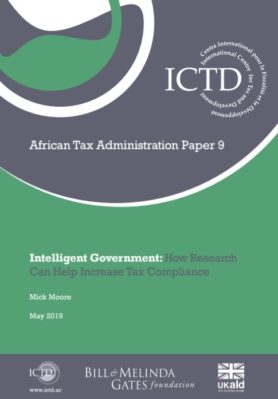African Tax Administration Paper 9
How can governments and tax authorities best encourage taxpayers to be compliant, i.e. to be more honest in declaring information about their tax obligations and paying what is due? Unfortunately, one common response, rather misleadingly termed ‘education’, is to preach at taxpayers: to tell them that it is their duty to pay taxes, and threaten them with punishment if they fail. This kind of ‘education’ is not very effective, and may even reduce compliance. By contrast, there is a growing range of low-cost research techniques that can help tax authorities understand, for particular taxes and contexts in particular countries, how tax compliance can best be increased through the actions of the tax authorities themselves. It is increasingly possible for tax authorities to understand how their ‘clients’ behave in response to the tax collection procedures that are in place, and then to modify those procedures to increase compliance. These research techniques are increasingly used in low income countries, and by the staff of tax authorities rather than (solely) by external research experts. The paper summarises three research experiments successfully concluded in Africa in recent years by combinations of tax authority staff and external researchers. One of those experiments reveals the value of efforts genuinely to educate taxpayers – rather than to preach at them.
